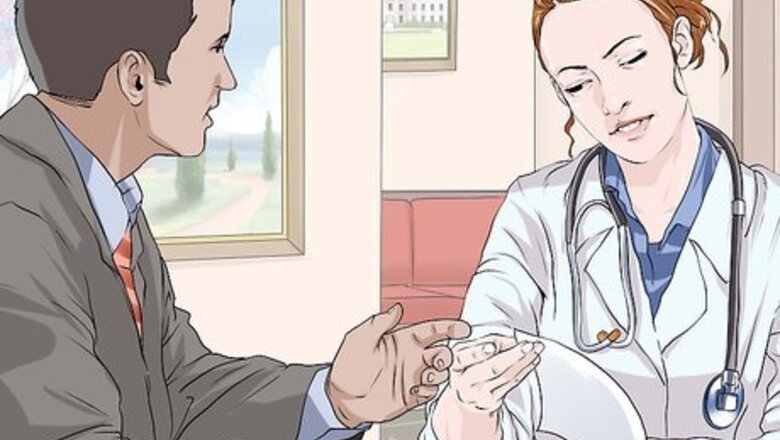
views
X
Research source
Your doctor can prescribe medications and you should also follow at-home care methods to speed recovery time. There are also alternative methods that are not proven to cure Bell's Palsy, but which may ease symptoms caused by it.
Using Medication
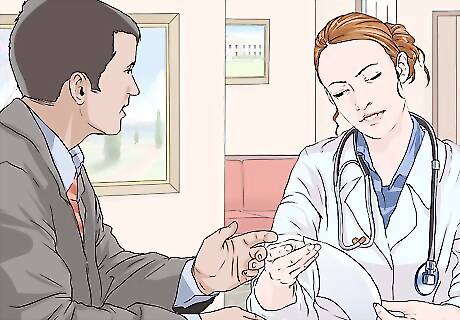
See your doctor immediately. Treating Bell's Palsy is easiest if given prompt attention. If you have unusual feelings in your face or an inability to control your facial muscles, let your doctor know as soon as possible. They can determine if the problem is Bell's Palsy or a different medical issue, and determine the best treatment plan for you. Signs that you may have Bell's Palsy include: Trouble closing or blinking one or both eyes Difficulty controlling facial expressions Twitching Drooping eyelids Drooling Difficulty tasting Dry eye or mouth Excessive tearing of the eye
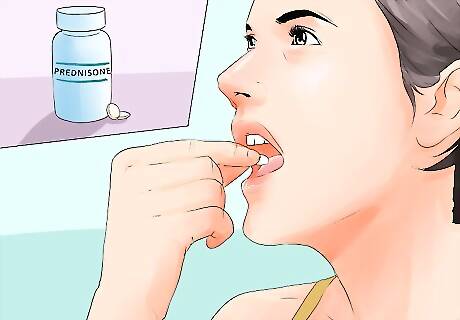
Take prednisone. This corticosteroid is an anti-inflammatory that your doctor may prescribe. Your doctor may prescribe you to take it for a week, then reduce the dosage for the following week. As an anti-inflammatory, prednisone may help reduce the swelling of the facial nerve causing Bell's Palsy. It may also relieve some of the pain caused by muscle tension. Before taking prednisone, talk with your doctor about possible drug interactions, especially if you are taking birth control, blood thinners, or have pre-existing medical conditions such as diabetes, HIV, or heart problems, or if you are pregnant or nursing.
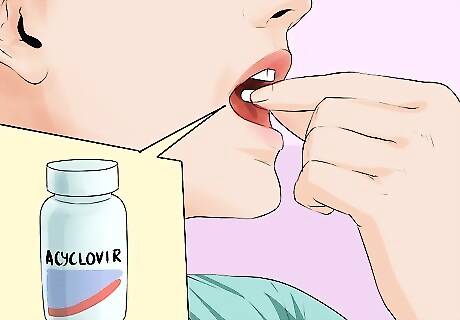
Take antivirals. Acyclovir is an antiviral medication that is used to fight herpes simplex (which causes cold sores), but it may also help treat Bell's Palsy. It is not certain that acyclovir alone can have this effect, but it is often prescribed in combination with prednisone as a treatment for the disorder. The combination of acyclovir and prednisone as an effective treatment suggests that Bell's Palsy may be caused by herpes simplex.
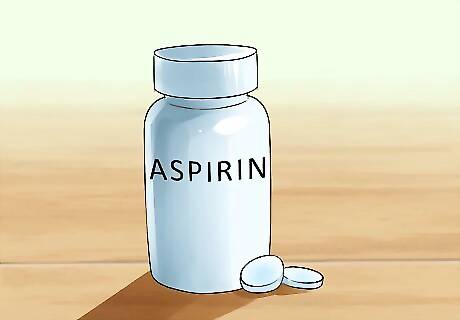
Use over-the-counter (OTC) pain relievers. Bell's Palsy may cause pain in addition to the loss of muscle control and other symptoms. Taking OTC pain relievers such as aspirin, acetaminophen, or ibuprofen can help reduce your discomfort. To prevent harmful drug interactions, always talk to your doctor about taking any over-the-counter medications if you are currently on any prescription medications.
Following At-Home Care
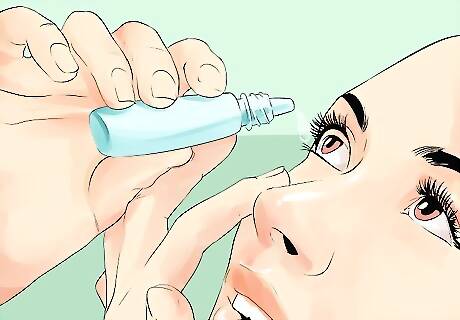
Protect your eye. Since Bell's Palsy can make it difficult to close an eyelid, the eye on the affected side may become irritated and dry. To keep the eye moist, try lubricating eye drops or ointments, and an eyepatch. Wearing glasses or goggles during the day and an eye patch at night can help keep irritating debris out of the eye. Limit computer time when you are suffering from Bell's Palsy, since excessive computer use can lead to dry eyes.
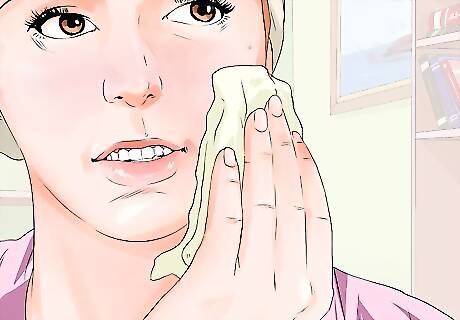
Apply moist heat. Wet a cloth in warm water and wring it out. Place it over the affected part of your face for several minutes. Repeat this application several times a day to relieve pain caused by Bell's Palsy.
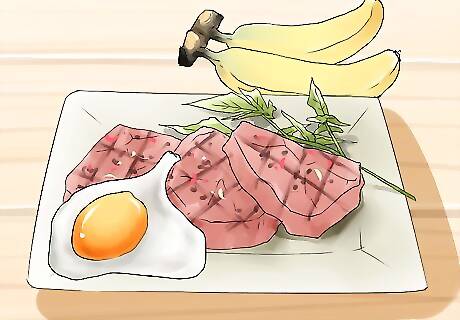
Add vitamin therapy. Certain vitamins and minerals (including B12, B6, and zinc) can promote nerve growth. These may help to relieve your Bell's Palsy, since its symptoms are related to nerve damage. Good sources of vitamin B6 include avocado, banana, beans, meat, nuts, and whole grains. Good sources of vitamin B12 include beef liver, shellfish, meat, eggs, milk, and some fortified cereals. Good sources of zinc include high-protein meats such as beef, pork, lamb, and dark meat chicken; nuts, beans, and whole grains. You can also ask your doctor about taking supplements to ensure that you get enough B12, B6, and zinc.
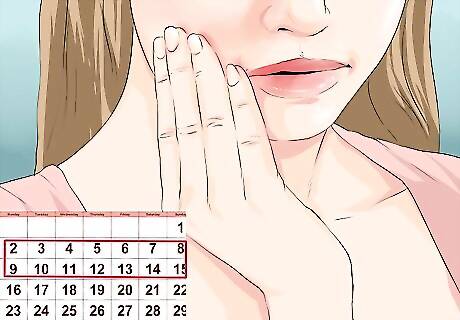
Be patient. Recovery time depends on the extent of nerve damage and whether you're also being treated for an obvious cause of Bell's palsy. While the length of recovery time varies from person to person, symptoms usually improve within two weeks (with or without treatment). Even if this is the case, it may take your body three to six months before you're completely recovered. The symptoms of Bell's Palsy may recur, even after you're completely recovered. Be sure to talk with your doctor again to determine if there's an obvious cause.
Trying Alternative Treatments
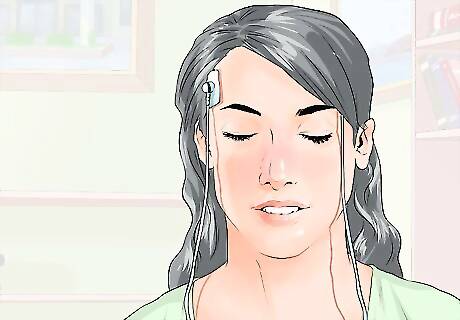
Practice biofeedback. This is a process of learning to train your mind to understand and control your body. It can help get facial function back by conditioning you to consciously think about controlling your facial muscles and to be aware of sensation in the area affected by Bell's Palsy. Specific biofeedback techniques will vary based on your case, so ask your doctor to recommend a particular biofeedback program.
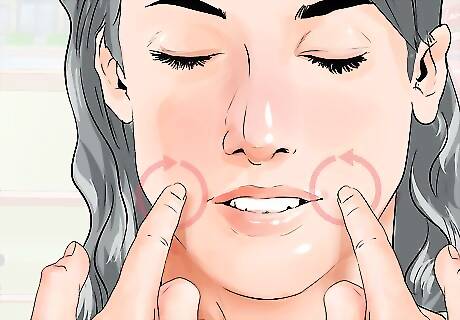
Work on physical therapy exercises. By training your facial muscles using various exercises, you can regain some of your facial functions. These exercises can also help relieve some of the symptoms of Bell's Palsy, including pain. Ask your doctor to refer you to a physical therapist that has experience in treating Bell's Palsy.
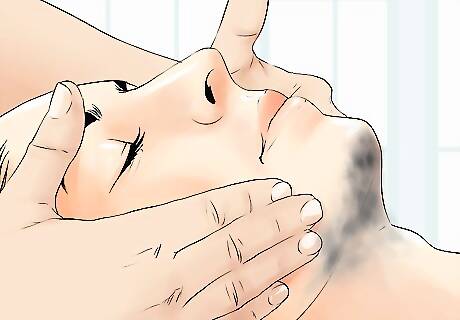
Get facial massage. Like physical therapy, facial massage can help restore function to the area affected by Bell's Palsy, and ease some of the discomfort caused by it. Ask your doctor about a referral to a massage therapist with experience in treating Bell's Palsy with facial massage.
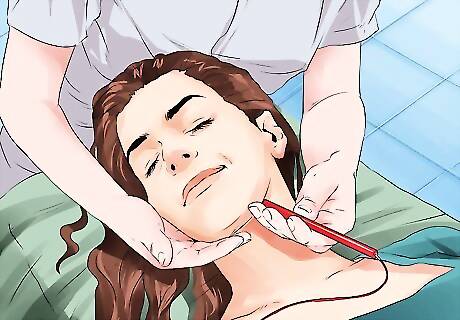
Consider electrical stimulation. In some cases, your doctor may recommend electrical stimulation as a way of restoring function to your face and/or encouraging nerve development to aid your recovery. This should only be attempted by trained medical professionals, and only when your doctor determines it will be beneficial.
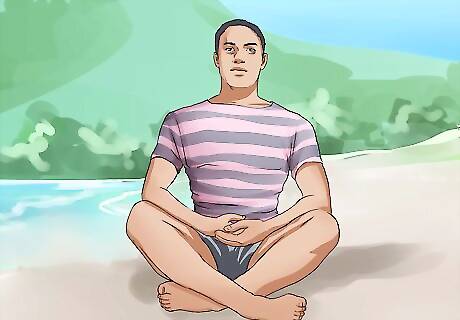
Do relaxation techniques. Meditation, yoga, and breathing exercises may relieve muscle tension and pain. There is no verification that this will cure Bell's Palsy, but it may help with the general discomfort caused by it Bell's Palsy can cause stress as well as physical discomfort. Relaxation techniques can also serve as a form of emotional therapy.




















Comments
0 comment